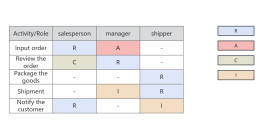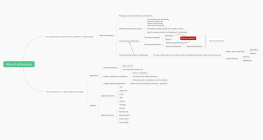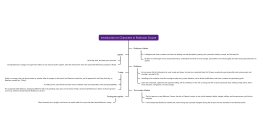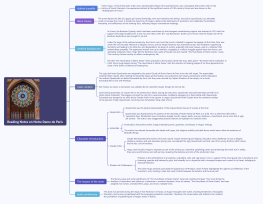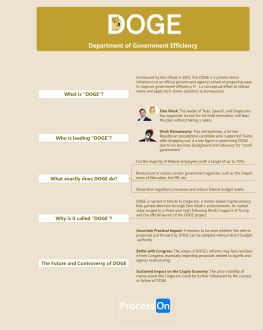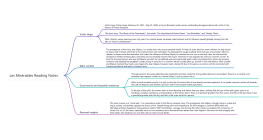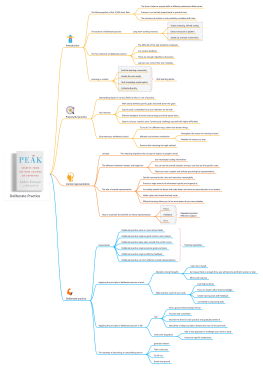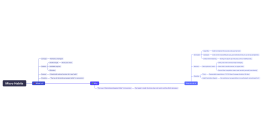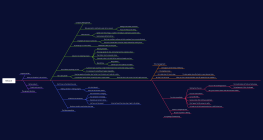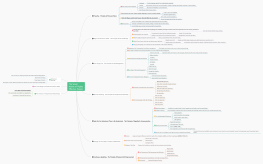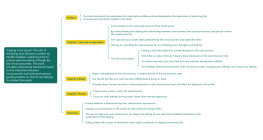Reading Notes on "Deep Work"
2024-11-04 18:06:03 0 Report
Login to view full content
Other creations by the author
Outline/Content
Part 1: Theory
Chapter 1: Deep Work is Valuable
Value-added workers
Senior technical worker
Low-value work is replaced by machines.
Professional differentiation makes high-value work even more valuable.
Superstar
"Winner-take-all" principle
Capital owner
The required skills
The ability to quickly master complex tools
The ability to reach an elite level
How to acquire ability
Deliberate practice
Focus on one thing.
Reason 1: Consolidate brain circuits
Reason Two: Reduce attention residue
Get feedback
Note: Not every job requires the "Deep Work Method"
Chapter Two: Deep Work is Rare
Trends are anti-"depth"
Encourage collaboration, sparking serendipitous sparks
2. Instant messaging in the company
Various suppliers appear on social media.
Cultural Connection
I hope that people at work can quickly read or respond to messages sent by others (emails, instant messages, etc.)
The reason: the principle of least resistance
Getting immediate responses from others at work can make your job easier.
A connected culture creates an environment where you can manage a day's work with a "inbox".
Misunderstanding: Busyness represents productivity
1. Many professions do not have clear goal standards
2. Choose "visible busyness" to prove your value
3. Action busyness becomes important, affecting deep work
"Technology Monopoly" Culture
Chapter 3: Deep Work Is Meaningful
Neurological perspective
Psychological perspective
Flow Activities
Enjoy
Pleasure
Philosophical Perspective
Part 2: Guidelines
Guideline 1: Work deeply
Eudaimonia Machine
(Bliss Machine)
(Bliss Machine)
model
Five rooms that can only be passed through in sequence
Room 1: Exhibition Room
Showcase deep work cases
Create an atmosphere of healthy pressure
Room 2: Salon
For argument and contemplation
Room 3: Library
A large amount of information
Room 4: Office
Finish shallow work
Room 5: Deep Studio
Why do we need EM?
People have a strong desire to take a break in difficult work.
Willpower
Willpower can be fatigued
Intentionally reduce the consumption of willpower
Don't challenge yourself easily.
Design Conventions/Routines minimize the willpower required to enter a state of deep work.
Execution: The difference between "what" and "how" is extremely important.
Principle 1: Focus on the most extreme important things
Principle 2: Focus on Leading Indicators
Lagging indicators vs leading indicators
Principle 3: Prepare a conspicuous "scoreboard"
Record the time spent on deep work within a unit of time.
Compare the time投入 and output effect
Motivate more input; check efficiency
Principle 4: Regular Accountability
Choose your own Deep Rhythm
Integrate deep work into your professional life.
habituation
A deep schedule of asceticism at work
Approach: Eliminate/Minimize Shallow Work
Applicable to those who have a clear and highly valuable career goal pursuit.
The profound daily schedule of the philosophy of dual peaks
Method: Divide personal life into two parts
Note
Time can be divided into multiple levels: by week/by quarter
The unit of time is at least a whole day.
Applicable to those who need to put actual work into non-deep work to succeed.
The profound daily schedule of rhythm philosophy
way
Chain Method: Continuously complete high-difficulty tasks
The best way to easily start deep work is to turn it into a simple routine habit
Set a start time and start deep work at a fixed time every day.
Applicable to: High work difficulty; Current time arrangement does not allow for concentrated resolution.
The depth of philosophical work schedule for journalists
Method: Use fragmented time to quickly enter a deep working state.
Applicant
Not a beginner, trained in a certain field, can enter the state at any time
Believe that what you are doing is important and can be successful through accumulation.
Find a ""Leisure"" time
Reason 1: Leisure time contributes to enhancing insight.
Leave some questions to "unconscious" thinking.
The time for conscious mind rest can activate the unconscious mind, thus clarifying the most complex professional challenges.
Reason 2: Leisure time is beneficial for replenishing the energy needed for deep work.
Attention Restoration Theory (ART)
To maintain focus requires self-directed attention, which is a limited resource. Once it is depleted, it is difficult to maintain focus.
Autonomous attention: supplemented by a period of relaxed attention.
Reason 3: The work put aside during the evening of leisure is often not as important.
Set the "stop work" ritual for daily work.
After stopping work, put down the work completely and don't allocate any attention or thinking.
Guideline 2: Embrace boredom
Explanation: The ability to focus intensely is a skill that requires training
Mental practice
People who frequently engage in multitasking lose their ability to focus.
Improve the upper limit of deep work ability through training.
Method 1: Don't keep getting distracted, but keep focusing
Function: Replan brain arrangement
Schedule distracting time from the overall time.
Reduce the use of mobile phones to kill time while waiting in line or taking a bus
Reduce the time your brain spends on shallow work or distractions
Reduce the time your brain spends on shallow work or distractions
Method 2: Work like Roosevelt
Set a deadline for an important task shorter than the estimated time, and charge forward with the task!
A period of high-intensity work
Method 3: Fruitful Meditation
Effect: Improve the ability to focus on thinking about problems.
Choose a professional problem to think about during the time when you are working with your body and idle in your mind
Advice 1: Be careful of distractions and spinning your wheels.
Suddenly want to do a boring little thing that might be boring in daily life.
Suggestion 2: Organize your deep thinking
Method 4: Remember a deck of cards
Effect: Improve attention control ability
Guideline 3: Stay away from social media
The "any benefit" psychology of network tools
Once you find any possible benefits of using an online tool, or you might miss something if you don't use it, you feel there is enough reason to use this online tool.
The method of selecting tools for craftsmen
Identify the core factors that determine success and happiness in your professional and personal life. Only choose a tool if its actual benefits outweigh its actual harm to these factors.
Three strategies to consolidate the "stay away" decision
Strategy 1: Adopt the Pareto Principle (80/20 rule) in online usage habits.
Not everything that is useful requires our effort, as 80% of the utility often comes from just 20% of the actions.
Give up the small benefits brought by using online tools to save energy.
Strategy 2: Quit social media
Packing Party
If you don't use a social media app within 30 days, delete it.
Strategy 3: Don't use the internet for entertainment.
Rule 4: Abandon Shallow
It doesn't mean that shallow work should be completely abandoned, as shallow work has its own value and regulatory effect.
Strategy 1: Plan every minute of the day
Time arrangements can be more flexible. The purpose is not to restrict or put pressure on yourself, but to remind yourself to consider what to do next to be better. It also facilitates review and recapitulation.
Respect time
Strategy 2: Quantitative analysis of the depth of each activity
Strategy 3: Finish work by 5:30 p.m.
Fixed Schedule Productivity
Squeeze out the water time of work
Automatically focus on valuable work
Strategy 4: Become hard to reach
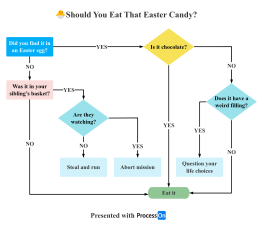
Collect
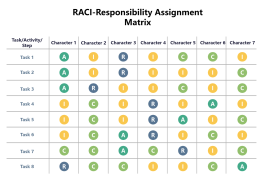
Collect
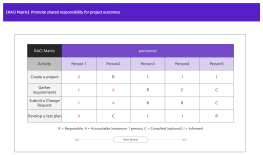
Collect
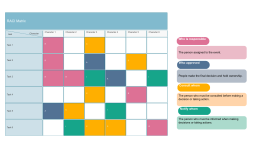
Collect

0 Comments
Next page
Recommended for you
More

